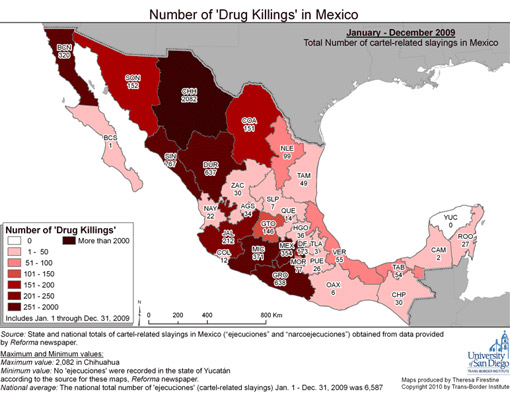NPR has the first of a three-part series titled The Case Of A Confidential Informant Gone Wrong by Carrie Kahn.
It’s the story of one of the uglier episodes in the ugly business of using informants in the drug war. The U.S. government paid and worked with an informant with full knowledge that he was, on an ongoing basis, participating in brutal murders in Mexico, all so they could try for a higher level collar. And they did so without informing the Mexican government about the murders or where the bodies were buried.
The informant would bring the duct tape to bind the victims and the quicklime to dissolve their bodies to the House of Death, whenever called by his cartel boss to prepare for a “barbeque.” He even held victims down while they were being murdered.
For this, he was paid a quarter million dollars by the U.S. Government, and encouraged to continue. Once the story broke, now the U.S. wants to deport the snitch in the hopes that he’ll be killed in Mexico.
The lawbreaking went high in our government, but they’ve tried to pawn it off as just the actions of a couple of agents (as though a couple of agents could organize a cross-border operation with a well-paid snitch involving major cartel targets and murder without higher-ups knowing).
This case needs more visibility, and it’s good to see NPR covering it.
Eventually, U.S. officials told Mexican authorities about the bodies buried at the House of Death.
Lorenza Magana, who works with victims of violence in Juarez, sat vigil with relatives of missing family members outside the house the night that Mexican authorities began unearthing the remains.
“We stayed there all night and watched as they pulled out bodies,” Magana says. “It was so horrible. With every new body, the smell would hit us — it was horrible. We came back night after night to see how many they dug up.”
In all, there were 12 victims. Magana says she couldn’t believe it when she found out that Lalo, the gatekeeper of the death house, was a U.S. government informant.
The story probably wouldn’t be out there at all if it wasn’t for Bill Conroy’s tireless coverage for years at NarcoNews.
Update: Here are the other two parts of the NPR series on informants.


